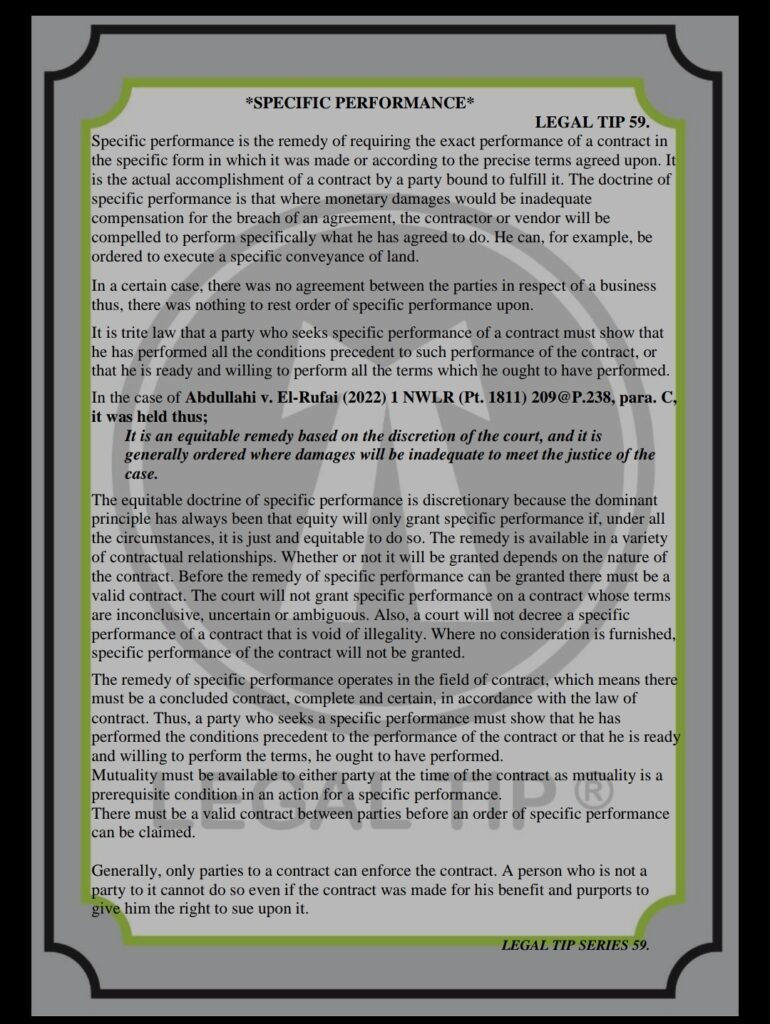Specific performance is the remedy of requiring the exact performance of a contract in the specific form in which it was made or according to the precise terms agreed upon. It is the actual accomplishment of a contract by a party bound to fulfill it.
The doctrine of specific performance is that where monetary damages would be inadequate compensation for the breach of an agreement, the contractor or vendor will be compelled to perform specifically what he has agreed to do. He can, for example, be ordered to execute a specific conveyance of land.
In a certain case, there was no agreement between the parties in respect of a business; thus, there was nothing to rest order of specific performance upon.
It is trite law that a party who seeks specific performance of a contract must show that he has performed all the conditions precedent to such performance of the contract, or that he is ready and willing to perform all the terms which he ought to have performed.
In the case of Abdullahi v. El-Rufai (2022) 1 NWLR (Pt. 1811) 209@P.238, para. C, it was held thus;
“It is an equitable remedy based on the discretion of the court, and it is generally ordered where damages will be inadequate to meet the justice of the case.”
The equitable doctrine of specific performance is discretionary because the dominant principle has always been that equity will only grant specific performance if, under all the circumstances, it is just and equitable to do so.
The remedy is available in a variety of contractual relationships. Whether or not it will be granted depends on the nature of the contract. Before the remedy of specific performance can be granted there must be a valid contract. The court will not grant specific performance on a contract whose terms are inconclusive, uncertain or ambiguous. Also, a court will not decree a specific performance of a contract that is illegal. Where no consideration is furnished, specific performance of the contract will not be granted.

The remedy of specific performance operates in the field of contract, which means there must be a concluded contract, complete and certain, in accordance with the law of contract. Thus, a party who seeks a specific performance must show that he has performed the conditions precedent to the performance of the contract or that he is ready and willing to perform the terms, he ought to have performed.
Mutuality must be available to either party at the time of the contract as mutuality is a prerequisite condition in an action for a specific performance.
There must be a valid contract between parties before an order of specific performance can be claimed.
Generally, only parties to a contract can enforce the contract. A person who is not a party to it cannot do so even if the contract was made for his benefit and purports to give him the right to sue upon it.
LEGAL TIPS is anchored by Ms CIA Ofoegbunam, an Abuja-based lawyer who is passionate about legal practice.LEGAL TIPS offers quick hints on substantive law, as well as rules of practice and procedure, and serves as a handy reference guide to lawyers, especially in court.Published on a weekly basis, the LEGAL TIPS Series is CIA’s modest contribution to legal development in Nigeria.



